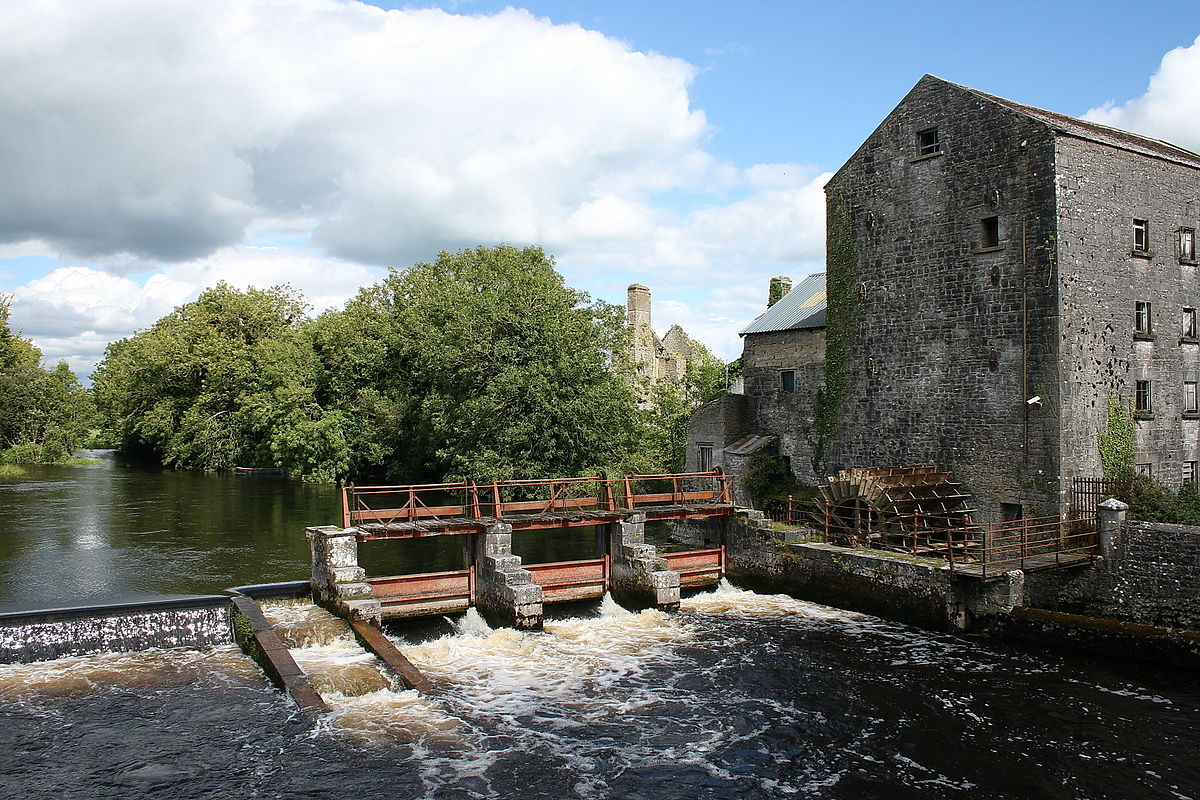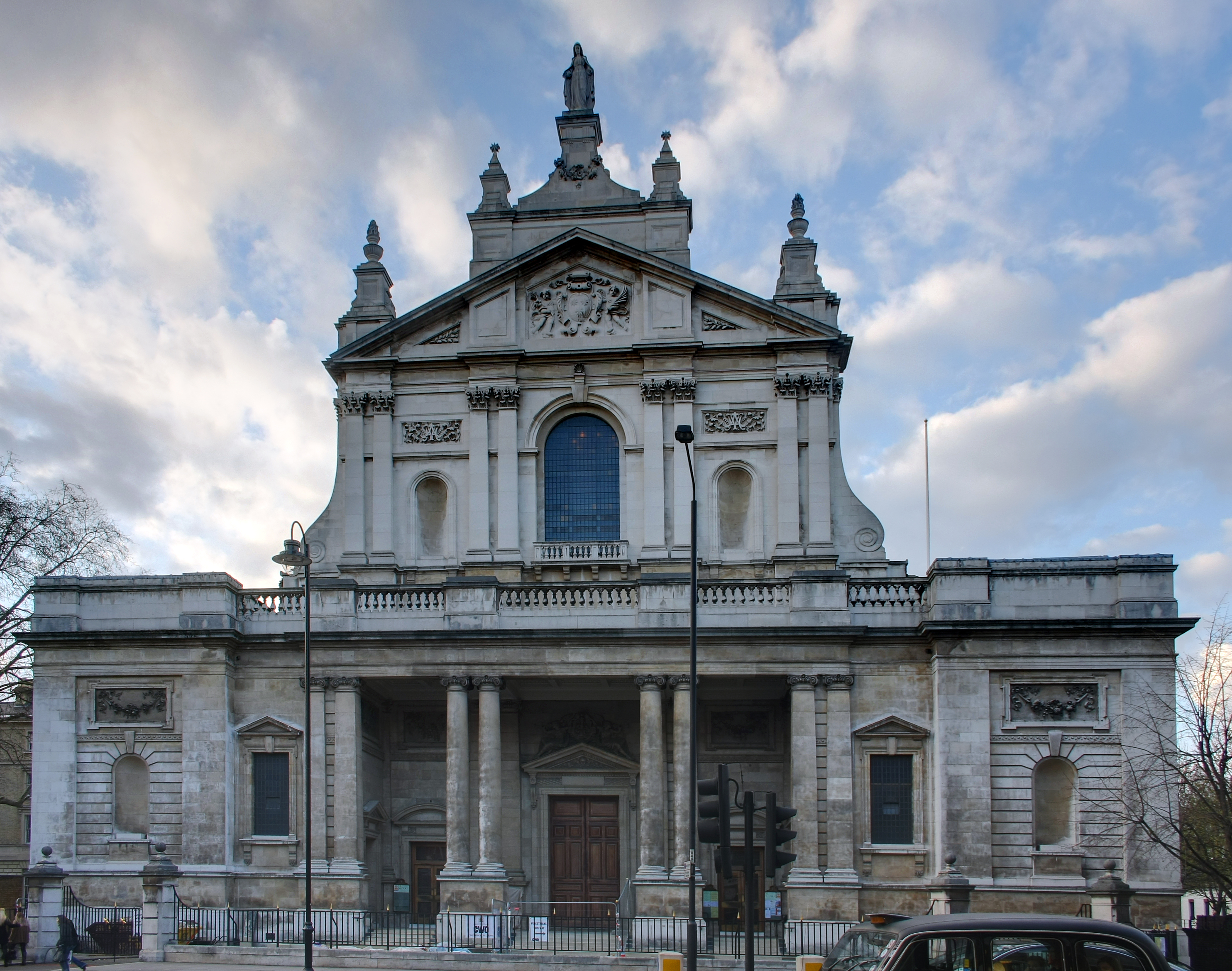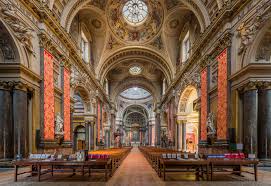” The people are getting prodigiously enlightened ; nor do I think that their propensities are so vicious as they were some years back. ” This is more from the ” Recollections of Skeffington Gibbon. ” published in 1829, a book best taken with less a pinch, and more like a sack, of salt, and stories embroidered enough to fell all but the stoutest Archbishop under the weight of all that thread. This is what he has to say about his father’s memories of murders in county Roscommon in the late eighteenth century.
“ For instance,” said my father, “ how many heinous murders have occurred in this country in my own recollection, the like of which are now seldom to be heard of ? “
At one time a whole family was murdered near Carrick-on-Shannon; among whom was a Mr. Lawder, the kinsman of the immortal Goldsmith, and the Croftons, of Moate, near Roscommon. [ This turns out to be just the murder of James Lawder himself.]

Several murders were perpetrated by the notorious Anne Walker and her sanguinary husband ; they kept a public inn or half-way house at a place called Boxford — I believe part of the Coote estates, in the vicinity of Roscommon. In this den of murder, and rapacity for the goods and chattels of others, they perpetrated, unsuspected from their opulence, the most ruthless crimes; when detected in the very act, from the cries of a gentleman in bed in their house, at two o’clock at night, the sanguinary husband got off in a beggar woman’s apparel, and evaded being brought to justice for his dark offences ; but his infamous wife was burned at a stake near that old ruin of the Dillon family, about half a mile from Roscommon, the county town from which they take their title. [ The Dillons had a number of different peerages, but one of the principal ones was Earl of Roscommon, who held Roscommon Castle.]
That Daly, who committed a rape on a girl of ten years of age, and, from the violence he used on so young an infant in putting his wicked desires into execution, for fear, according to his own confession, that it would lead to a discovery, murdered her, and hid her under his bed, in which place she was found by her disconsolate parents, kept a country shop near Cloughan, in the Barony of Athlone, and suffered the sentence of the law at the usual place of execution at Roscommon, in the year 1780. I knew his sister, a widow, named Madden, a respectable and industrious woman, who lived many years on the lands of Baslick, near Castlerea, in this county.
Her daughter [Mrs Madden’s], an innocent young woman, was, not many years back, seduced by a pious Dignitary of the Church, not more than one hundred miles from the See-house of Elphin. Not only that, the Reverend Doctor took under his pious care the wife of a man well known in the Whip Club, of the name of Dalton. This is but an outline. [ This is also a perfect example of Skeffy’s bitchy best, managing to mention a child rape, and murder alongside the seduction of Mrs Madden’s daughter, and naming her, and the parish she lived in. How many Widow Maddens are there likely to be in a parish of less than 15,000 people? ]
“ Children,” said my father, ” of the many revolting massacres committed in this and the adjoining- counties within these few years back, I do not recollect any of them so heinous as the horrible murder committed on the body of young Mr. Bellew, at the great fair of Ballinasloe, and the chief of the gang his own domestics and dependents.
Mr. Bellew was respectably connected in the County of Galway, being lineally descended from Earl Bellew, as also allied to the house of Mount-Bellew, one of the first Catholic families in that county. He lived with his father, (as single gentlemen generally do in this kingdom,) at a beautiful seat, now in ruin, called Drum-House, on the road leading from the village of Creggs, on the Burke manors, to the Town of Tuam, a Bishop’s See, both in that county.

Young Bellew, unfortunately, accompanied his father to this celebrated meeting, well known as the October Fair. I think it was in 1786. Mr. Bellew got a large sum of money for fat cattle the two first days of this meeting, which his own cotters and the stable men of his household saw him making up in the inn where he stopped, and which money they thought the young son retained in his possession ; consequently, a gang (about nine) of those fellows planned a scheme to induce the young gentleman to come to the stable where he kept his horses, about nine o’clock in the evening, saying that they would have a fascinating young woman to meet him. To this he agreed; and to jog his memory, an infamous villain of the name of Greaghan, his own stable-boy or helper, came at the appointed hour, and sent word up by the waiter that he was below stairs, and wished to see his young master.
On Mr. Bellew receiving the message, he desired the waiter to order the man his dinner, which was accordingly obeyed. When the dinner was laid before the monster, who was bursting, like Judas, with evil thoughts, the maid who served him went in search of a knife and fork, sometimes scarce articles at this great fair ; however, to her surprise, at her return, though only about a minute absent, Greaghan had the meat cut on his plate with a large knife commonly called a jack knife, and with which he murdered Mr. Bellew in a few minutes afterwards.

Young Bellew had asked his father’s permission to go and see the curious scenes at such large meetings, which gentlemen about his age (not more than twenty- one), are generally anxious to view. His father reluctantly complied, but not until one or two gentlemen who dined with them, and were enjoying themselves at their wine, interfered, by which the unfortunate young man was allowed to go out for a short time. He asked his father for some pocket money ; to which he complied in no pleasing terms, and threw him a purse across the table, containing some silver and sixty guineas in gold. On leaving the inn, Greaghan met him at the door, and conducted him to a lonely stable in a remote lane, within a few paces of the great River Suck, which moves in all its magnitude through part of this town, and empties its copious influx into the noble Shannon, about four miles from Dunlow, commonly called Ballinasloe, where the unfortunate Mr. Bellew entered this horrible den.
He was conducted to a dark corner, in which one of those demons, named Cusack, was seated on a bundle of straw, dressed in woman’s clothes. This villain (Cusack) was selected from the other gang to personate a female, in consequence of his feminine appearance, having no beard, being of fair complexion, and particularly as Mr. Bellew had no knowledge of his exterior. Mr. Bellew advanced towards the young lady, as he thought, to embrace her and put his hands round her person ; but the reception he met for his caresses was a mortal stab of a large knife in his abdomen. He screamed, and called upon Greaghan to come to his aid; but the assistance he met with was the whole of the gang coming and stabbing him in various parts of the body. As he lay prostrate on the floor, even when dead, a young man, who happened to come into the stable at the moment, was obliged to give him three stabs, and take his oath that he would never divulge the secret. They rolled the body in some hay, tied it up in a sheet, and threw it into the River Suck. “
Amongst the murderers was a farmer’s son of the name of Lyons, from the village of Croswells, on the Caulfield estate near Donamore. Lyons was the only son, and what I may call a spoiled child, of respectable and industrious parents far above want, and how he could bring himself to be guilty of so atrocious and sanguinary an action, and to join such a group, who had no stake or dependence in the country, save the general lot of those serfs and peasants who possess no other means but their scanty earning from one meal to another — their residence a filthy, smoky hut, their companions a pig, a cat, and a-half starved mangy dog — some may have a cow, a goat or an ass, which is driven from the wretched abode of its nominal owner, (as it generally happens that the latter is more indebted to the rackrenter or landlord than the animal is worth,) to some barren moor or noxious marsh, apparently sinking as a swamp ready to swallow in its stagnated mire the skeleton, which, from its craving maw and the pangs of hunger, is obliged (not that any thing delicious is in the soil) to feed on its unwholesome weeds.
I don’t impute to the oppressed peasant or rustic that these miseries are solely caused by his not reading extracts from the New Testament; far from it, they spontaneously grow with his growth: he is born in poverty — to comfort he is a stranger; and, inundated in want and wretchedness, he closes his eyes in the arms of death upon a world that afforded him no other soothing consolation but ail the pangs and horror that middlemen, rackrenters, rapacious tithe proctors, and the unceasing demands of the voluptuous absentee, can inflict upon a well disposed people. To these misfortunes the unfortunate Lyons was a stranger, as his parents were in comfortable circumstances, and possessed that state of mediocrity that they neither felt the pangs of keen distress nor the sudden surplus of overgrown wealth. The whole of this infamous gang who murdered the much and justly-lamented Mr. Bellew were executed in the town of Galway, and their bodies hung in chains in the town of Ballinasloe for many months afterwards.
In talking of the horrible murder of eighteen of the Bodkin family, by a step-son and a nephew, near Tuam, which gave to the perpetrators of that massacre the never-forgotten appellation of the “Bloody Bodkins” — the murder of Randal M’Donnell, Esq., by the notorious Captain Fitzgerald of Turla, in Mayo — the murder of Squire Reynolds of Litterfine, by the sanguinary and cowardly Kean of Newbrook, in the County of Leitrim, and many others, my father repeated a few days before his death, in 1812, with as much novelty as on the days they respectively occurred.
“ My children,” said he, “ My days in this world are coming to a close; so far you have made me happy; poverty is no crime, let not your thirst for opulence and comfort ever cause you to be guilty of a base or contemptible action; if you raise yourselves by your industry, as I have very little more to bequeath you than my blessing, I entreat of you never to leave yourselves in the power of your friends, much more your enemies, as many false friends and false prophets are abroad; therefore, be as wise as serpents and as harmless as doves ; don’t disgrace the memory of your ancestors by any ignoble or ruthless action; rather receive an insult than give one. “
These words from an aged and affectionate parent made no small impression on my mind at the time, but from several circumstances that occurred since that period, they have been doubly impressed on it; more so, when describing the barbarous and inhuman murder of my brother, at his residence near Castlerea in the County of Roscommon. [ This is even more of a curiosity, given that Skeffington Gibbon is a pseudonym. Dr. Patrick Melvin, speculates that he (Skeffy) may be either James or Augustus O’Kelly, a brother of Patrick O’Kelly, who was a somewhat eccentric poet. But either way, there doesn’t seem to have been an O’Kelly murder near Castlerea at the right time.] I recollect one day when living at Fairfield the observations my father made about the Glinsk family. [ These are the Burkes of Glinsk Castle, Galway, and Skeffy will deliver a huge hatchet job in a few pages time.]

On walking to the summit of Mount-Mary, he pointed to several green fields that were reclaimed in his time, which he said he seen covered with heath and brushwood ; as also to some deep pits that the late Major Waller of Rookwood sunk to get coals, but failed, by which he lost a considerable sum of money ; and added, that his gambling in London and Paris was the principal cause of his handsome estate being sold, the chief part of which was purchased by the humane and benevolent Mrs. Walcott, the sister of Judge Caulfield of Donamon Castle, who bequeathed the rents of those manors for charitable purposes, and with which the Gaol Infirmary and Charter School of Roscommon are liberally endowed.
When he came in sight of the cottage and garden wherein he was born, he seemed greatly affected and shed tears. After a pause of some time, ” My poor mother,” says he, ” breathed her last on this spot where I now sit : how often my two brothers and only sister, now mouldering in the grave, sported at our innocent amusement round these ruinous walls : but why should I grieve ; what is this world but vanity, and the longest that lives must only consider it a dream. I have no reason to complain : I have good children, and I know if your mother survive me that you will all endeavour to make her happy ; she is a worthy, humane woman, a virtuous exemplary wife, and a good mother. What would I not sacrifice, consistently with my salvation and the character of an honest man, for the welfare of my family; I have laboured incessantly for their support, and would at this moment lay down my life for their happiness.“
“As to the Burke family,” added he, ” the most powerful feudal lords at one time in this country — who possessed that wide district of a beautiful and diversified vale, a land flowing with milk and honey — where is all their pomp and grandeur now? The auctioneer’s bell ringing every other day to sell those manors that they possessed for eight hundred years. Nothing is certain (says he) in this uncertain world.”



